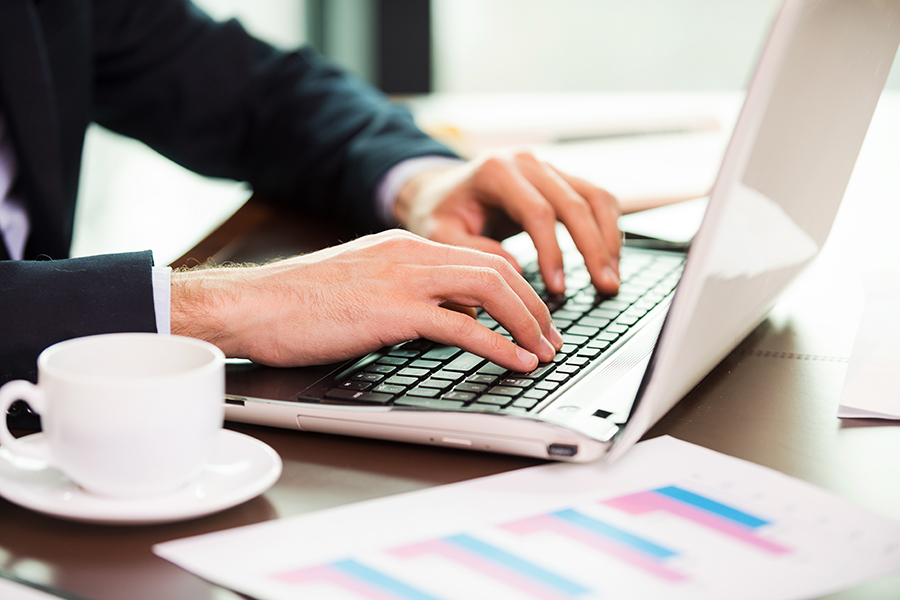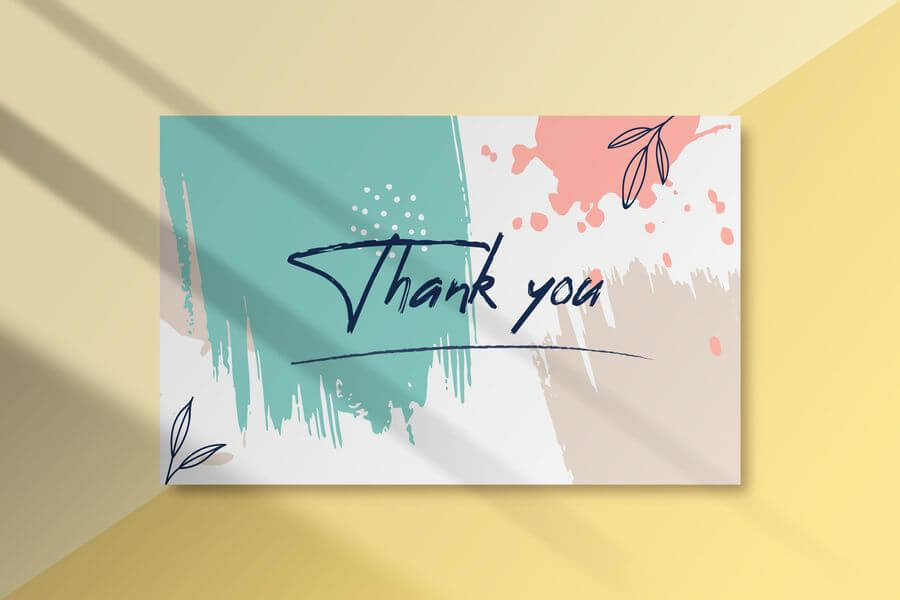While most job seekers put in a lot of effort into writing their resumes and preparing for interviews, they ignore thank-you emails after an interview. What they don’t know is that it does make a good impression on employers.
It is a follow-up letter that allows you to create a good impression on your potential employer.
In this guide, we will discuss how to write a thank-you email and provide you with samples and templates you can use to craft yours.
Free Templates
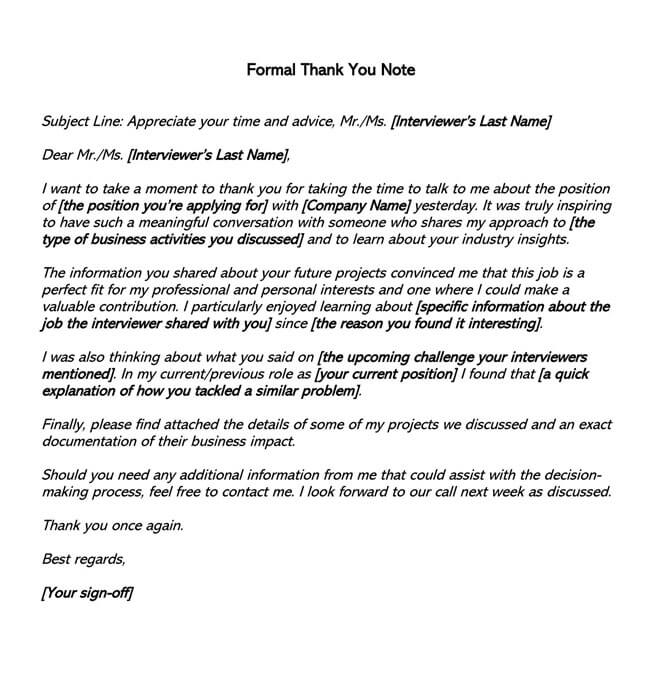
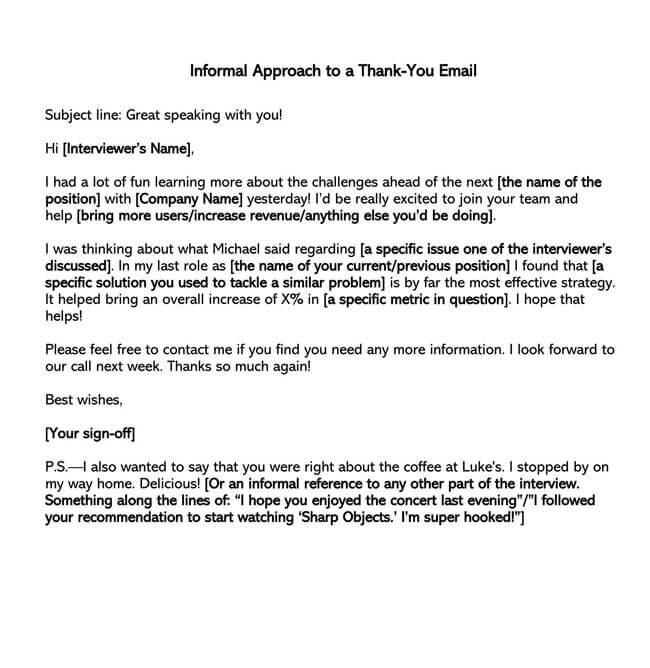
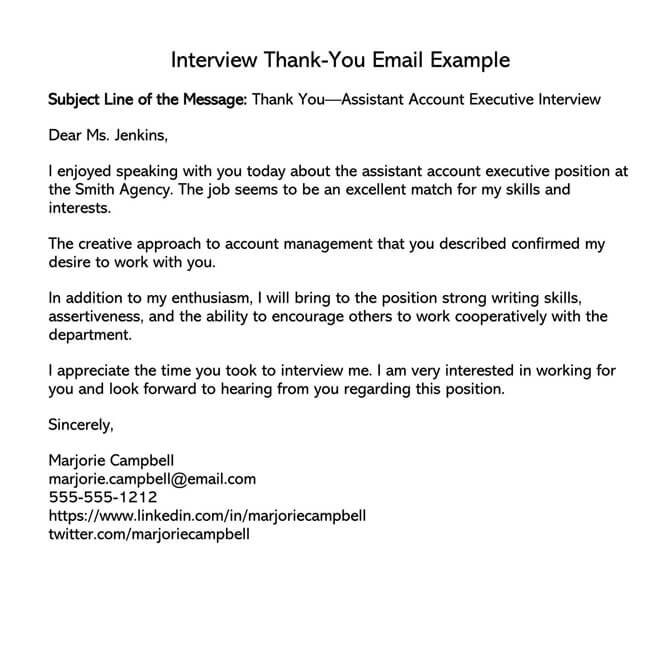
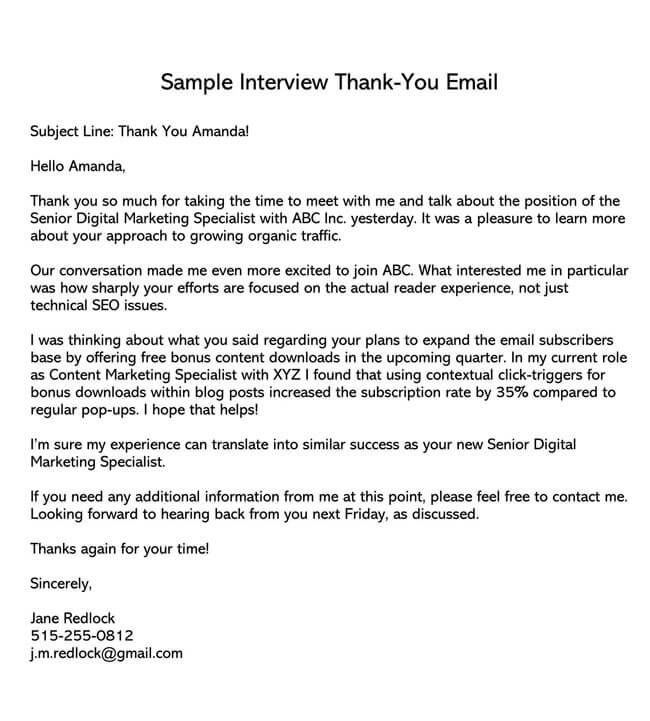
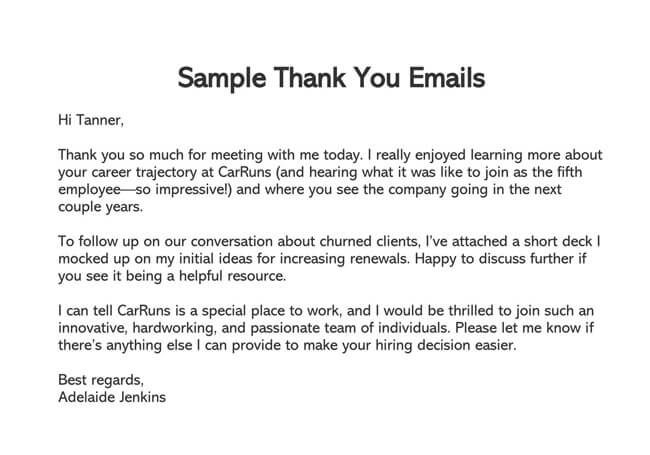
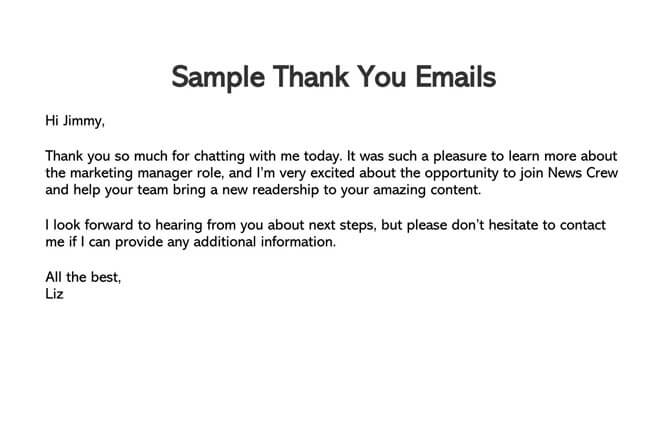
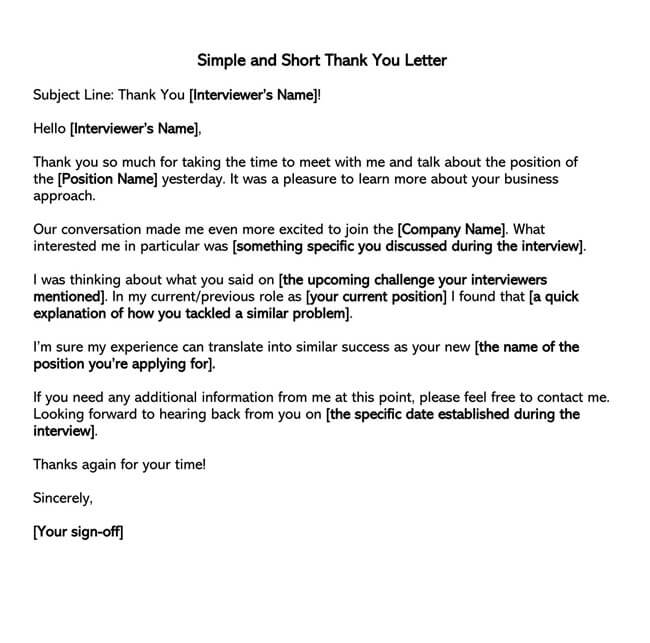
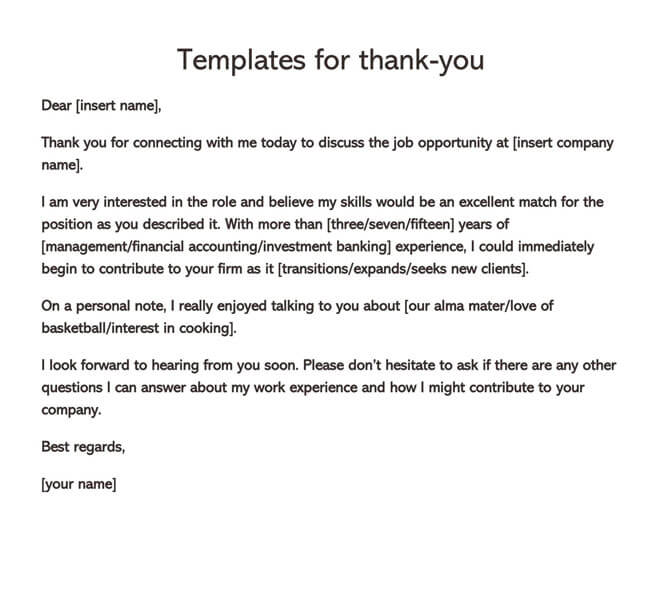
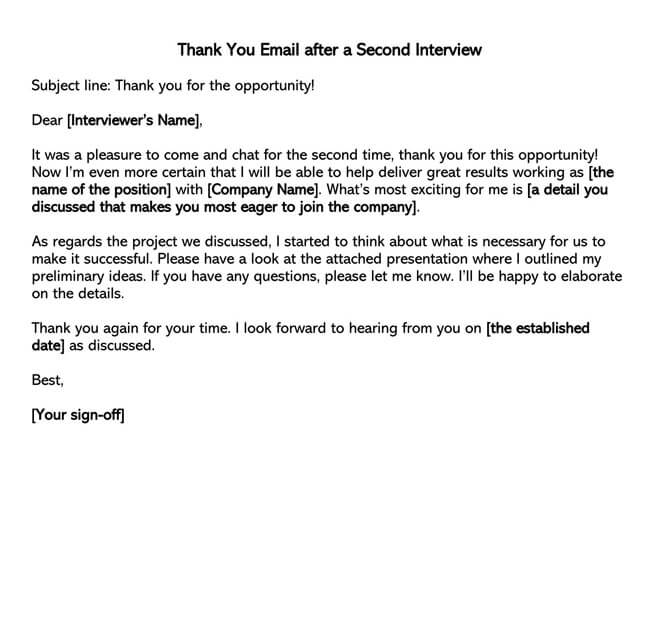
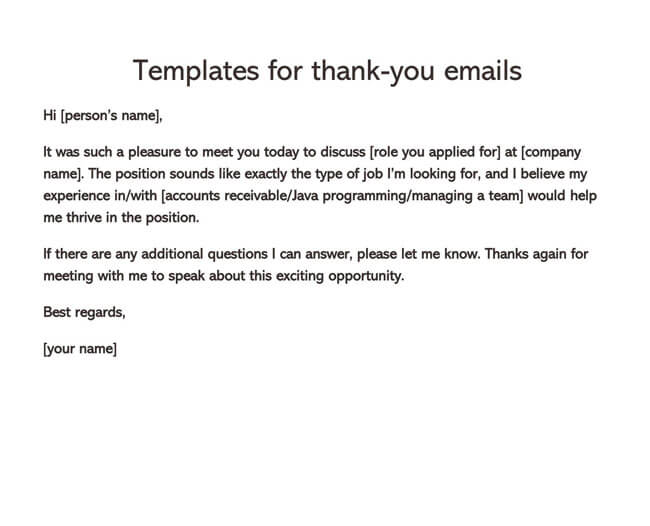
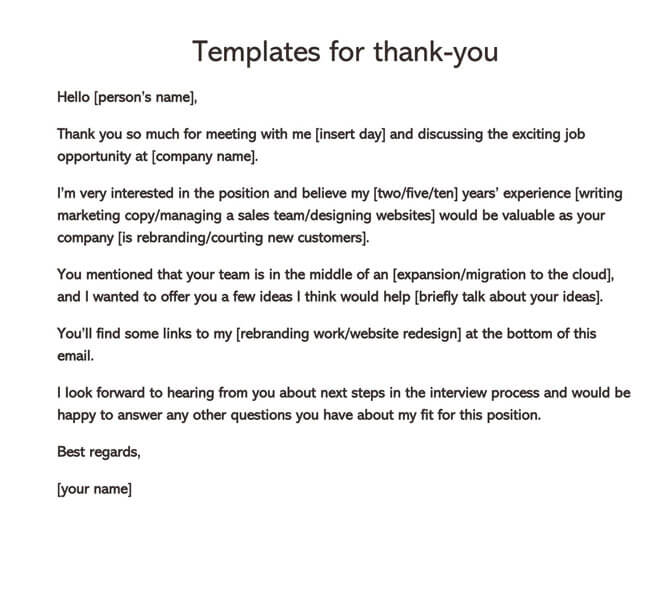
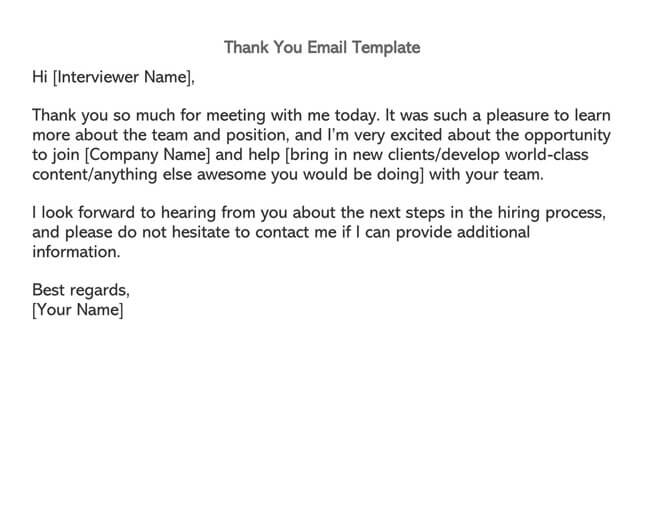
Benefits of the Thank You Email
When choosing between sending an email or a handwritten letter, thank you emails will be your safest choice. This is because sending an email is quicker than a letter. A 2017 study has shown that 94% of hiring managers think post-interview thank you emails are appropriate.
Following are a few advantages of such emails:
- The gesture of interest- A candidate’s failure to follow up after an interview could leave the impression they are not interested in the job enough to go the extra mile and reach out to their potential employers.
- Opportunity to influence the employer- If you were interviewed, then you are up against 5 or 6 other candidates, who probably have qualifications that are similar to yours. That means you will need an extra push to stand out. This is where a well-written interview thank you email comes in.
- Handwritten letters are too slow- A handwritten thank you letter can offer a personal touch and can even help you stand out. However, it can take days to arrive. On the other hand, you can connect with the hiring team more quickly with an email. This can influence the team’s decision before they finish their hiring process.
- You can add online portfolio links- If you have an outstanding online portfolio, this is your chance to show off to your potential employers. This will allow your employers to click the link and check out your portfolio.
Different Types of Thank-You Email
Following are the different types of thank you emails and the scenarios where to use them.
Brief Thank You Email Sample
This is short and straightforward. It is good if the interview was for entry-to-mid level candidates.
SAMPLE 01
Subject line: Thanks for meeting with me
Dear Mary,
Thank you again for taking out the time to interview with me yesterday morning. I enjoyed our conversation about the Relationship Manager position and appreciated learning more about working with the Relationship team.
It sounds like a fantastic role, especially with the chances for advancement and collaboration. I think my master’s in customer relationships and experience would make me an excellent fit for the position.
I look forward to discussing this more opportunity with you. Please don’t hesitate to reach me if you need more information about my references.
Thank you,
Rebecca Zach
rebeccazach@email.com
333-555-8888
Detailed Thank You Email Sample
Send this detailed email only after in-depth interviews that lasted for over 45 minutes.
SAMPLE 02
Subject line: Appreciate your time, Mr./Ms. (Interviewer’s name)
Dear Mary,
Thank you for having me for an interview this morning. I enjoyed our conversation about the Product Manager position and appreciated learning more about the different products. The way the product team and advertising teams work together sounds ideal for reaching goals and attaining performance.
The Product Manager position sounds like a significant role, especially given the opportunities to make decisions and achieve goals. I think my master’s in Management from Yale University and more than nine years of experience working as a product manager with other teams would make me an excellent fit for this position.
I look forward to speaking to you more about this opportunity. Please don’t hesitate to reach me for a follow-up interview.
Thank you,
Jessica Ram
Jessicaram@email.com
333-555-8888
Formal Thank You Email Sample
This is sent after an interview with an organization that relies on more official interactions.
SAMPLE 03
Subject line: Thank you for the interview
Dear Dr. Mary,
Thank you for discussing with me the customer service position this afternoon. It was inspiring to have such an insightful conversation about the customer retention metrics, and it was great to learn more about your contributions to the industry.
The details you shared about the role and targets for customer service reassured me that the role would be a perfect suit for my qualifications. I believe that my Masters from Edison University and nine years of experience as a customer service specialist would allow me to make a valuable contribution to the department.
Thank you,
John Doe
johndoe@email.com
333-555-8888
Informal Thank You Email Sample
It is excellent if you applied for positions at a small company with a relaxed culture. It is also great if you used great for creative and artistic roles.
SAMPLE 04
Subject line: Great speaking with you!
Hi Creole,
I had a great time understanding more about the challenges ahead of the following process [the position] with [the Company Name] yesterday! I’d be thrilled to join your team and help [/increase revenue/or anything else you’d be doing].
I was pondering on what James said as regards [an issue one of the interviewers discussed]. In my former role as [the name of your current/previous position], I found that [a specific solution you used to tackle a similar problem] is the most effective strategy. It helped bring an increase of X% in [productivity]. I hope it helps in this situation!
Please feel free to reach me if you need any more information. I look forward to our following discussion next week. Thank you so much again!
Best wishes,
[Your sign-off]
Sending a Thank-You Email
The time to send it is when you’re still fresh in your interviewer’s mind. This means you should send the email within 24 hours. That is the same day or the next day, just after the interview.
Here are a few things to consider while sending a thank-you email:
- Sending email after being interviewed by various interviewers- Send it to everyone that was on the team. Ensure that you customize or personalized for everyone on the team. This is because they will share the emails.
- Sending email after a panel interview- A panel interview would be an exception, especially if most of the panel interviewers joined via Skype or phone. If this is the situation, send one thank you email addressed to everyone
- When you do not have all interviewers email address- Send one email to one of the panelists and then ask them to help provide you with the email addresses of the other interviewers, or you could use as for their email from the HR person who contacted you for the interview.
The Do’s and Don’ts
Writing it requires tact and also has its do’s and don’t’s that would help guide you in the right direction. We have scoured the internet to provide you with every correct step to take when writing it.
The do’s:
- Broach anything you wish you have said- Make sure you discuss anything you wish you had told your interviewer or whatever they didn’t remember to ask. For example, if you didn’t have the chance to explain how you helped your previous employer grow their business, you can briefly mention this in the email.
- Express that you want the job- Let your potential employer know you want the job. Talk about why you applied to that position, highlight your qualifications, and how your capabilities will contribute to the company’s growth.
- Discuss any issue mentioned during the interview- Use your email to address any issues that came up during the interview, including questions you didn’t answer the way you wish you had. You can explain your answer in more detail in the email.
- Always proofread for spelling mistakes- Grammatical errors can be a turn-off. Make sure you thoroughly edit your email before you send it. You can have someone read it and point out your errors. This is one of the best ways to proofread, as anxiety might cause you to not notice your errors.
The don’ts
- Do not annoy your interviewers- Don’t stress your interviewers out. A thank you email and a follow-up after a week or so are enough. Don’t go beyond that. You are trying to make your potential employers know that they can work with you. You are not trying to show them otherwise.
- Do not send anything inappropriate or informal- Stick to formality. Don’t try to be friendly. Go straight to the point. Use only appropriate words. See our samples for how such emails should look like.
- Do not overwrite the stuff- Write a short and focused message. Your interviewer is not interested in reading a long thank you email. Your focus should be on saying “thank you” and briefly restate your interest in working with the company.
- Do not send grammatically incorrect emails- Mistakes are typical, so you shouldn’t expect your message to be free of grammatical errors. Make sure you proofread before you click the send button.
Frequently Asked Questions
The answer is yes and no. Your potential employers may have many emails to respond to and choose not to respond to your thank you email. Whether you get a response or not, it’s important not to over-analyze. Getting a response from them doesn’t mean you got the job.
A professional option is starting your email with “Dear,” followed by their name or “sir” or “madam.”
If the company you applied to seems old-fashioned and is more traditional, then a handwritten letter mailed to the office might get you further than an email.
Final Thoughts
When you write your thank-you email, make sure you craft a personalized message. Don’t just copy and paste from the internet. Our tips and templates will guide you. Also, don’t bombard your interviewer with follow-up emails. If, after one or two follow-ups, they don’t get back to you, move on.

